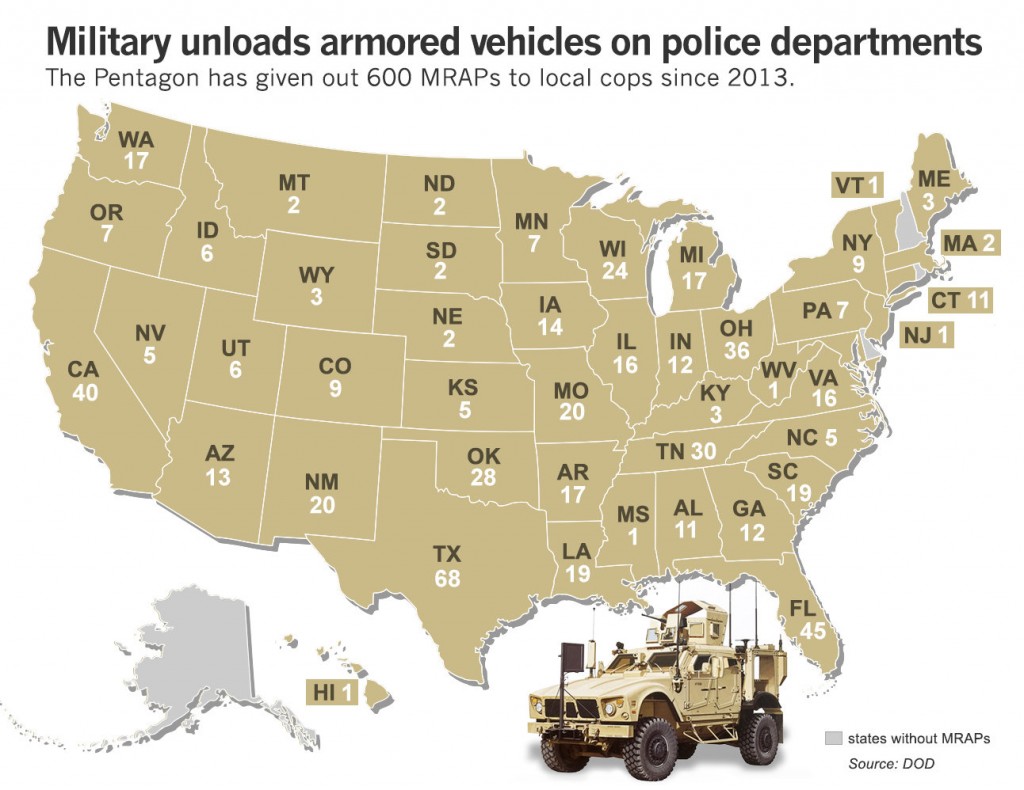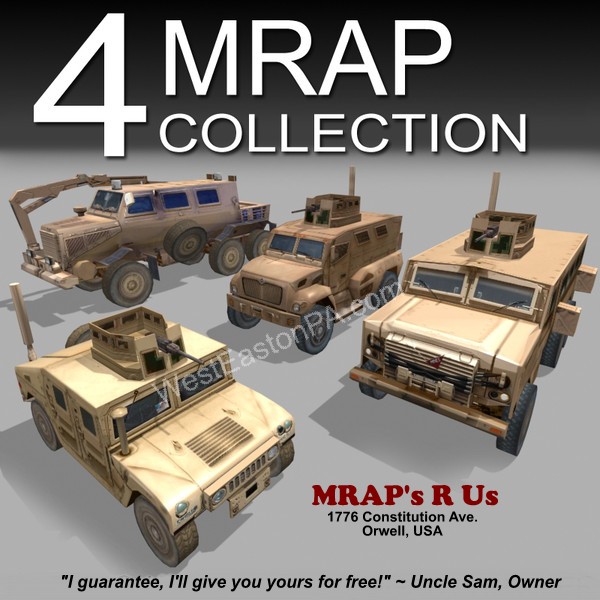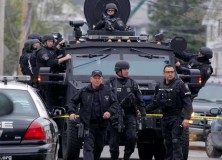 It is unlawful and unconstitutional to use US troops on American soil.
It is unlawful and unconstitutional to use US troops on American soil.
So says the Constitution, but that hasn’t stopped the government from creating a paramilitary force using local police and state law enforcement agencies, some would argue. By providing small towns with federal grants to purchase the same gear and assault armor used in Iraq and Afghanistan, the Mayberry’s of America are ready for a fight in Fallujah.
Fear of drugs, crime and terrorism have been used to justify the expansion of SWAT programs and the acquisition of military grade weaponry and vehicles in America’s smaller towns. Citing previous work, investigative journalist Radley Balko writes that the number of SWAT teams in municipalities with populations between 25,000 and 50,000 “increased by more than 300 percent between 1984 and 1995,” and that 75% of all of these towns had their own SWAT teams by the year 2000.
When residents of these communities voice their concerns at arming police with the same assault equipment used in wars, the proponents of Totalitarianism waive a flag and suggest that not arming the police with the biggest and baddest war gear is unpatriotic and a death sentence to the police officer.
How can a warrant possibly be served if they don’t have the capability to bust through a wall with a Bear assault vehicle?
Here are a few instances of towns in the U.S. that felt the need to own an assault vehicle:
Keene, New Hampshire
A town with a murder count of two since 2009, Keene’s city officials surreptitiously accepted a $285,933 grant from the Department of Defense in 2012 to purchase a Ballistic Engineered Armored Response Counter Attack Truck, or BearCat.
While I might think it preposterous that a sleepy New England town would need to commandeer a tank intended to withstand IED attacks, Jim Massery, sales manager for the manufacturer of the Bearcat, Lencor Armored Vehicles, made it clear how he felt about residents who objected before the sale.
“They just don’t think police officers’ lives are worth saving,” said Massery.
Columbia, South Carolina
Richland County, where Columbia is located, caught the attention of some activists in 2008 when its sheriff purchased an armored personnel carrier from the DOD. Police in the area continued buying military-grade vehicles unchallenged. Most recently, the Columbia Police Department purchased a mine-resistant war truck from the DOD in the fall of 2013.

Unlike Keene’s BearCat, Columbia’s “U.N. blue” has a turret that can be armed with a 50-caliber machine gun. It’s also built to withstand any mine blasts it may trigger in the streets of the “Capital of Southern Hospitality.”
The Columbia Police Department’s application for the MRAP explained that the $658,000 armored vehicle was needed to “protect our officers and the public during high risk counter drug and counter terrorism operations within the city of Columbia and the state of South Carolina.”
Those damned drug traffickers and their land mines.
Washington, Iowa
Shellmyer, a 78-year-old city councilman for the small town of Washington, Iowa, was the sole local politician to vote against the department of 12 police officers getting the free MRAP — short for mine-resistant, ambush-protected vehicle — from the Defense Department three months ago. Washington is one of hundreds of towns and cities to get a recycled MRAP from the Pentagon over the past year and a half.
“Here’s the thing,” Shellmyer says. “Washington, Iowa, has 8,000 people. We have an MRAP now. We have a SWAT team. We have [police] dogs, and we have a SWAT team transportation vehicle that’s not armored.”
Too bad Easton, PA is so far away. They could have borrowed EPD’s assault vehicle.
And when brute force doesn’t persuade them, make a preemptive strike by demanding ID’s from citizens:
Paragould, Arkansas
The Paragould police chief attempted to turn a rising crime rate into a carte blanche for sending fully outfitted SWAT teams into communities to ask every single person in public for identification. The population of the town is 27,000.
“To ask you for your ID, I have to have a reason,” said police chief Todd Stovall at a town hall meeting in December 2012. “Well, I’ve got statistical reasons that say I’ve got a lot of crime right now, which gives me probable cause to ask what you’re doing out.”
The mayor stood by his police chief. “They may not be doing anything but walking their dog, but they’re going to have to prove it,” he added to Stovall’s remarks.
The policy of de-facto martial law captured national attention and inspired an immediate response from the Arkansas ACLU. Stovall issued a statement justifying police-state tactics as features of “proactive police philosophy dedicated to managing problems before they become unmanageable,” and gave limited lip service to the Constitution and rule of law in general.
The public outrage forced city officials to back away from the Orwellian initiative.
Disclaimer: On January 4, 2016, the owner of WestEastonPA.com began serving on the West Easton Council following an election. Postings and all content found on this website are the opinions of Matthew A. Dees and may not necessarily represent the opinion of the governing body for The Borough of West Easton.







